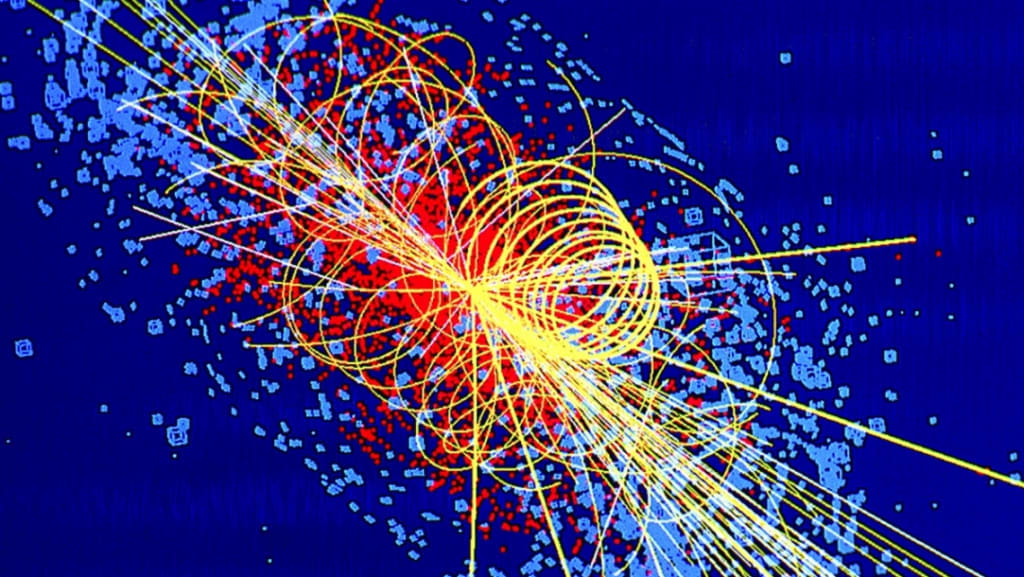The mysterious Higgs Boson Particle
Unveiling the Mysteries of the Higgs Boson Particle: A Journey into the Heart of Matter

In the realm of particle physics, few discoveries have captivated the scientific community and the public alike as profoundly as the Higgs boson particle. Its existence, predicted decades ago, was finally confirmed in 2012 through experiments conducted at the Large Hadron Collider (LHC), marking a monumental milestone in our understanding of the fundamental building blocks of the universe.
Named after British physicist Peter Higgs, who, along with other theoretical physicists, proposed its existence in the 1960s, the Higgs boson is a crucial component of the Standard Model of particle physics. This model describes the fundamental particles and forces that govern the universe, providing a framework for understanding the intricate workings of matter and energy.
So, what makes the Higgs boson so special? At its core lies the key to understanding mass. According to the Standard Model, particles acquire mass through their interaction with the Higgs field, a pervasive field that permeates the entire universe. Picture it as a cosmic molasses through which particles move, and as they do, they interact with the field, gaining mass in the process.
However, before the discovery of the Higgs boson, this mechanism was purely theoretical. Scientists had no direct evidence of the field or the particle responsible for imparting mass to other particles. The search for the elusive Higgs boson became one of the most significant quests in modern physics, with experimental physicists around the world working tirelessly to detect its presence.
The breakthrough came at CERN's Large Hadron Collider, the world's most powerful particle accelerator. By colliding protons at unprecedented energies, researchers recreated conditions akin to those just after the Big Bang, allowing them to probe the fundamental nature of matter. It was within this colossal machine, nestled beneath the Swiss-French border, that the Higgs boson finally revealed itself.
The discovery of the Higgs boson was not merely a confirmation of theoretical predictions; it was a triumph of human ingenuity and collaboration. Thousands of scientists from diverse backgrounds and nationalities contributed to this monumental achievement, underscoring the collective effort required to push the boundaries of human knowledge.
But the significance of the Higgs boson extends beyond its role in validating the Standard Model. Its discovery opens the door to deeper questions about the nature of the universe. For instance, why does the Higgs field have the strength it does? What lies beyond the Standard Model? These questions beckon physicists to explore realms yet uncharted, pushing the boundaries of our understanding even further.
Moreover, the Higgs boson holds implications beyond the realm of theoretical physics. Its discovery has practical applications, ranging from advancements in medical imaging to potential breakthroughs in energy technology. Understanding the fundamental forces and particles that govern the universe could pave the way for revolutionary technologies yet to be imagined.
In the years since its discovery, scientists have continued to study the properties of the Higgs boson, probing its interactions with other particles and delving deeper into its implications for our understanding of the cosmos. Each new insight brings us closer to unraveling the mysteries of the universe, illuminating the fundamental truths that underpin reality.
In conclusion, the discovery of the Higgs boson stands as one of the most significant achievements in the history of science. It is not only validates decades of theoretical work but also propels us towards a deeper understanding of the universe. As we continue to explore the mysteries of the cosmos, the Higgs boson serves as a guiding light, illuminating the path toward a more profound comprehension of the fundamental nature of reality. Science will never forget the contribution of Peter Higgs, François Englert, and four other theorists.






Comments
There are no comments for this story
Be the first to respond and start the conversation.